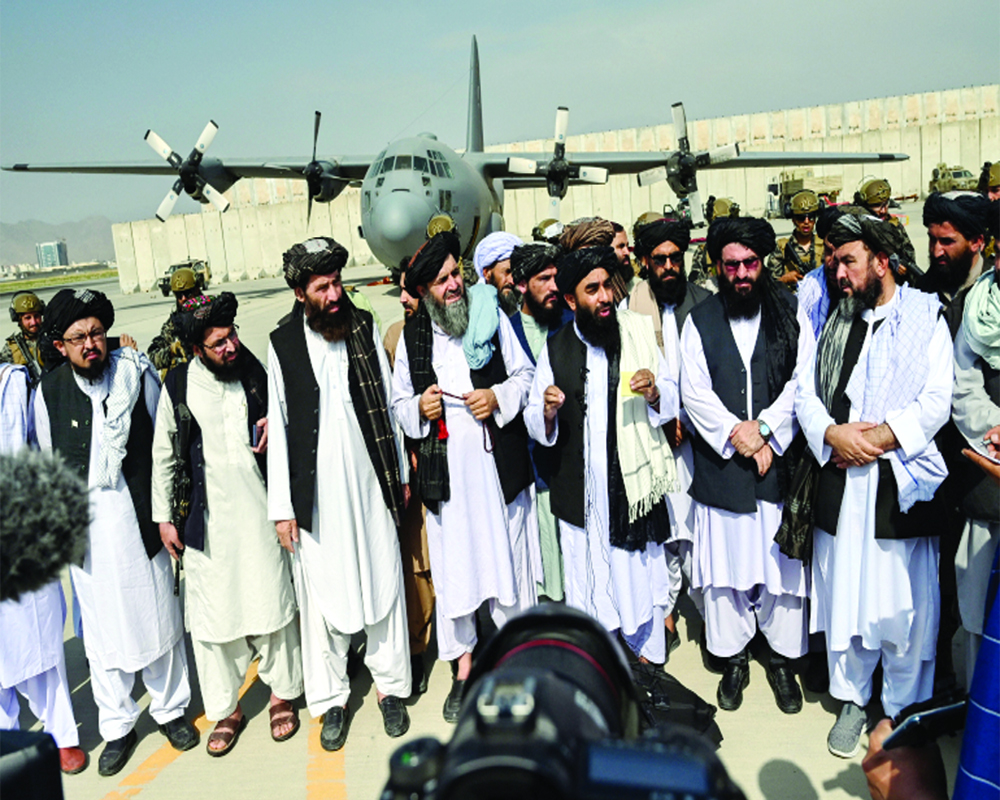The coming BRICS summit and the dialogue with the US assume importance for India
September brings to the table key multilateral meetings with focus on recent developments in Afghanistan and the way forward. It is also a crucial month for India's outreach to global powers on issues vital for sustained growth and security in India and the neighborhood. To recap the week's events, Pakistan intelligence agency chief Lt Gen Faiz Hameed landed in Kabul, Pakistan facilitated a meeting of leaders of countries neighboring Afghanistan (Iran, Turkmenistan, Uzbekistan, Tajikistan and China) and Taliban claimed end of resistance in Panjshir. And finally, a caretaker government in Afghanistan is in place led by a team that seems like a Pakistan intelligence agency prop with a few recognized international terrorists. Most of these events are currently unfolding like a Pakistan (also China) choreographed narrative. As we have been mentioning in these columns, the future of Taliban (if not Afghanistan) and their acceptance as a force of governance is being curated by its old benefactor Pakistan. However, one fails to understand if the situation is temporary optical advantage or long-term nation building. The latter, i.e., building a unified, inclusive and participative government structure in Afghanistan seems beyond the capabilities of Taliban's new dictators. Pakistan in the mid-1970s had managed a similar power game when they installed Daud Khan in Kabul followed by the Mujahideen in late 1980s and finally Taliban in mid-1990s. However, they were short-lived fantasies. Therefore, Pakistan's current euphoria at being Taliban's spokesperson and key negotiator seems ephemeral. Pakistan cannot erode all its resources while trying to prop up a made for 21st century Taliban regime while its citizens suffer at home. It needs a clutch of global sponsors to run with its central Asian and most important anti-India agenda besides as well as all-weather ally China and silent supporter Russia. It definitely needs some verbal assurances from rich Western nations to maintain its credibility in Afghanistan. The Western nations, post a hasty retreat of US and NATO allied forces, are currently using their past allegiances with Pakistan for rescue and evacuation exercises. Most dominant Western nations formally accepting the Taliban regime could be tough. This leaves the landlocked nation Afghanistan again as a global pariah, and a fertile hotbed for any regional power to exploit for terror activities and plunder away the remaining natural resources and minerals.
All this is happening in India's neighborhood and has a direct threat to Indian interests.Therefore, the BRICS summit and the India-US dialogue assume importance. India's agenda at BRICS relates to reform of the multilateral system, counter-terrorism, using digital and technological tools for achieving SDGs and enhancing people-to-people exchanges in the overarching backdrop of evolving geopolitics in Afghanistan. Even though Russia has maintained that it will adopt a wait and watch policy before it recognizes any new Afghan Government, it aligned with China in the UN security council (under India's presidency) on a resolution on Afghanistan. The verbiage emerging from UNSC seemed like a mild rebuke to the Taliban for not keeping its promise of maintaining rights of women, minorities and youth. The outcome of the talks between BRICS leaders moderated by India seem to converge on a shared interest of reminding Afghanistan of not being used as a terrorist training camp and prevention of planning violence in any country around the globe. The objective appears a little difficult to achieve at present. The second crucial window of opportunity for India is the QUAD summit (in person) in end-September and the India-US head of government level bilateral. The focus has to be on peaceful co-existence for all powers in the region for sustained prosperity.
(The writer is a policy analyst. The views expressed are personal.)
























